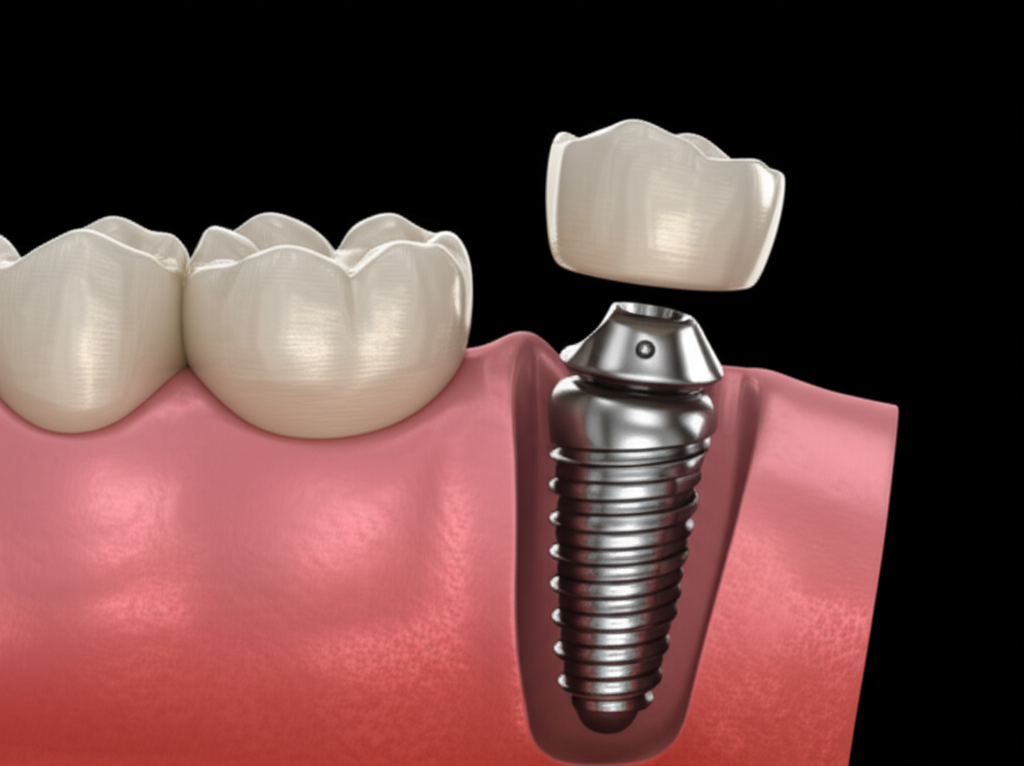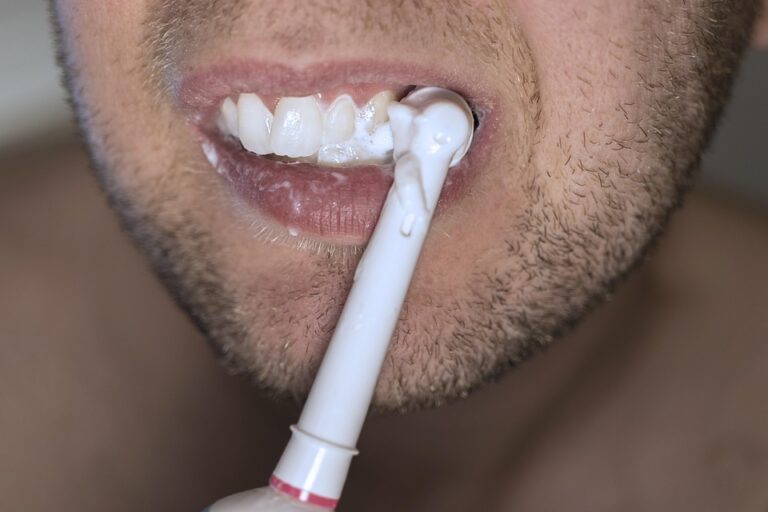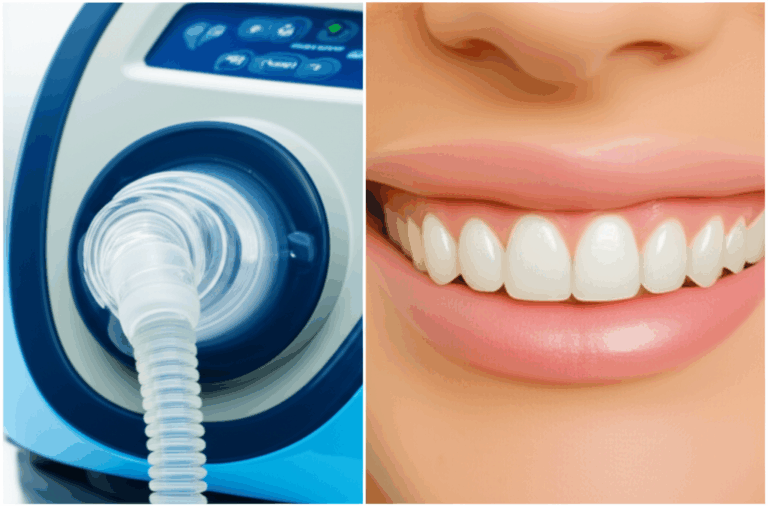
What Causes Dental Implant Failure? Understanding Risks, Prevention & Solutions
Table of Contents
- Peri-Implantitis
- Biomechanical Overload / Excessive Force
- Trauma, Implant Fracture, Bone Quality Issues, and Nerve Damage
Article Outline Overview
- Introduction and why this topic matters to me as a patient and dental care enthusiast
- Breakdown of causes behind early dental implant failure
- In-depth look at late dental implant failures, especially peri-implantitis
- How health, habits, and lifestyle influence implant success or failure
- Practical, firsthand advice for preventing implant problems
- What you should do (and what I did) if an implant starts to fail
- Closing thoughts on keeping your dental implants healthy for the long haul
Introduction: My Journey Into Understanding Dental Implant Failure
Dental implants changed the way I looked at mouth health, both as a patient and as someone interested in taking care of teeth. When I first heard about implants, I thought they were a forever fix—put it in and forget about it. But once I started learning, especially after getting an implant myself, I found out it’s not always that easy.
Implants can fail. And it’s pretty upsetting to learn that an implant might not last like you hoped. So, I decided to find out everything I could about why dental implants fail. I talked with dentists, read up online, visited my own dentist a bunch of times, and paid close attention to everything happening in my mouth. What I found out surprised me, sometimes even scared me, but also taught me a lot.
Today, I want to share what I learned, my own stories, and the most important things about what puts dental implants at risk—right from someone who’s had one.
Early Dental Implant Failure (Within Weeks to 3-4 Months)
Let me start with what can go wrong during those first weeks after you get an implant. I used to think when the dentist put the implant in, I was done. I’d just sit back, let my mouth heal, and go on living. But I learned the hard way, that’s not the whole story.
Lack of Osseointegration
Osseointegration sounds pretty fancy, but all it means is the implant screw has to stick to your bone, kind of like a tree root getting stable in soil. If the implant doesn’t connect with your bone, it’s probably going to fail from the start.
Why wouldn’t it connect? Here’s what I found from my own journey:
- Bad bone quality or not enough bone: Not every jaw bone is great for holding an implant. In one spot in my jaw, my bone was too soft (the dentist said Type IV bone), so the implant couldn’t grip well.
- The way surgery is done: Some dentists have more practice than others. A friend of mine lost his implant because his dentist drilled too fast and made the bone too hot.
- Chewing too soon or bumping the spot: I chewed on the side with my new implant too early. That made the implant move a little, so it never stuck to my bone. Like planting a tree then pulling at it every day—it won’t take root.
- Infection: Germs like open wounds. If you get an infection in the early stage, the implant can’t heal. It happened to my cousin because he didn’t clean his mouth the way he was told after surgery.
- General health problems: I learned diabetes, especially if it’s not under control, can make healing really slow. If your body is already struggling, the implant won’t bond well.
And of course, I have to mention smoking. My uncle’s implant failed early, and his dentist told him clearly—smoking stops enough blood from getting to the area for healing.
Infection (Acute Post-Surgical)
Right after surgery, infection is the main thing you don’t want. The classic signs—pain, swelling, pus, even fever—are hard to miss. I remember waking up one morning soon after surgery with a big ache and swelling. I panicked! Luckily, my dentist got me in and fixed it quick before it did too much damage. Lesson: don’t wait if you think something’s wrong.
Most early infections come from two things: not cleaning well enough (either by you or the dental staff) and not following your antibiotics or cleaning instructions. Skipping mouthwash or smoking right after surgery both make an infection a lot more likely.
Implant Mobility/Instability
It’s really important that an implant feels firm, even right after surgery. When I felt even the tiniest movement, my dentist told me it meant it wasn’t stable from the start. Even just moving it by touching it with your tongue (which I did by mistake) can stop it from healing right.
If this happens, your implant probably never becomes part of your jaw. It might be in there, but it’s not a real tooth you can use.
Late Dental Implant Failure (Months to Years After Osseointegration)
Imagine finally relaxing after the first few months… then problems come up out of nowhere. That’s late failure.
Peri-Implantitis
I kept hearing this word everywhere. First time my dental hygienist mentioned it, I immediately searched it on my phone. Peri-implantitis is just when the gums and bone around the implant get red, swollen, and infected—kind of like serious gum disease, but only around your implant.
Here’s why it shows up:
- Not cleaning your implant well: Don’t get lazy! Forgetting to brush and floss lets germs stick around, causing plaque and tartar. I skipped flossing for a while, and my gums started to bleed at my checkup.
- If you had gum disease before: History sticks with you. I’d had gum disease years ago, and that still raised my risk for trouble after getting an implant.
- Smoking: Smoking keeps causing problems. The chemicals make it easier for bacteria to grow and harder for your gums to heal.
- Not managing diabetes: My friend with high blood sugar got swelling and soreness around his implant that just wouldn’t go away.
- Family history or your body’s reaction: Some people just get more gum problems and bone loss, even if they try hard.
- Left-over cement: My dentist warned me about leftover glue after the crown goes on. It can get stuck under your gums and make an infection later.
Peri-implantitis doesn’t always hurt at first. Sometimes you just see some blood when you brush, a little swelling, or a bad taste in your mouth. If you ignore it, the bone under your implant slowly goes away—and then your implant starts to wiggle.
Biomechanical Overload / Excessive Force
This is where habits like grinding or clenching your teeth (bruxism) can really wreck things. I grind my teeth at night, so I had to get a custom nightguard for my implant.
- Bruxism: Grinding puts a lot of force on your implant, and with time, it can make it loose or break it.
- Bad bite: If your teeth don’t fit together well, your implant takes too much pressure while you chew. After one of my crowns was too high, I felt a “thud” every time I bit down. Dentist adjusted it quickly, but if left alone, it could have broken the implant.
- Not enough or too small implants: Trying to hold a big bridge on too few or tiny implants is just asking for trouble. Like parking a bus on a little toy car.
- Crown shape: If the tooth on top is too big or shaped wrong, it puts extra push on the implant and can crack or even break it.
Trauma, Implant Fracture, Bone Quality Issues, and Nerve Damage
These problems can happen anytime:
- Trauma: Getting hit in the mouth—like with a ball during sports (which happened to me, luckily no damage)—can knock or break the implant.
- Broken implant parts: Sometimes, the implant itself or its little screw breaks. It’s rare (less than 1% of failures), but if it happens, it’s a big deal.
- Bone shrinking: Over years, bone can slowly melt away because of age, osteoporosis, or just your body type. If that happens under the implant, it loses its hold and gets loose.
- Nerve problems: Not common, but really serious. If the implant goes in too close to big nerves in your jaw, you might get tingling or numb feelings that don’t go away. I had tingling once after surgery and hated it—it’s not fun!
Systemic Health Conditions & Lifestyle Factors Increasing Risk
One of the biggest things I learned was how much my overall health and habits can affect my dental implants. I used to think just flossing was enough, but there’s more to the story.
- Smoking and tobacco: The difference between smokers and non-smokers is huge. Smoking makes implants two or three times more likely to fail.
- Badly managed diabetes: When my sugar isn’t under control, every sore or cut in my mouth heals super slow. More risk of infection, plus problems with the implant sticking to bone.
- Autoimmune illnesses: Stuff like rheumatoid arthritis or Sjögren’s syndrome can cause swelling or make your body attack the implant area.
- Some medicines: I had no clue that medicines like bisphosphonates (for bone loss) could make your bone heal slower or even cause jaw bone to die (osteonecrosis). If you’re on any meds that affect your bones or immune health, tell your dentist.
- Radiation in the jaw area: I met someone who had radiation for cancer near her mouth. It made her jawbone weak, so implants were a bigger risk.
- Not eating well: Vitamins and minerals like calcium and vitamin D really help your bones. My dentist told me to eat healthy, with lots of green veggies, to help things heal.
Your health and your mouth are more connected than you might think!
Prevention: How I Lowered My Risk of Implant Failure
If I could go back in time, here’s what I’d tell my younger self—or anyone thinking about implants:
- Check your dentist’s experience: The right dentist makes a big difference. I found someone who really knew how to do implants, and it helped a lot. Don’t be afraid to ask to see pictures of their work.
- Ask for a full checkup first: Always get x-rays or even 3D scans to look at bone, nerve spots, and risks before the implant goes in.
- Stick to good cleaning: Brushing, flossing, using small brushes or mouthwashes—these all helped me. Regular cleanings at a dental ceramics lab kept my implants healthy too.
- Don’t miss check-ups: Keep all your appointments. My dentist spotted a small issue early and fixed it fast.
- Keep other health issues in line: I keep a close eye on my blood sugar, and both my doctor and dentist talk to each other about my care.
- Quit tobacco: After quitting, my second implant did much better than my first.
- Wear a nightguard if you grind your teeth: After breaking a crown from grinding, I started using a custom-made guard from a night guard dental lab.
- Always follow instructions after surgery: Even missing one day of antibiotics or not using mouth rinse can wreck all the effort from your surgery.
By doing all these, I gave myself a much better shot at keeping my implant strong.
What Happens If a Dental Implant Fails?
Nobody likes to think about this, but I’ve been there and it’s tough. It’s normal to feel upset, confused, or even a little embarrassed—don’t let those feelings stop you from getting help.
- Know the warning signs: Constant pain, swelling that won’t go away, if your implant feels wobbly, or you notice a bad taste or pus—these all mean trouble.
- Don’t wait—call the dentist: The faster you get help, the better chance you have at saving the implant or at least stopping things from getting worse.
- Treatment choices: Sometimes, the only way is to take out the bad implant, clean the area, and let it heal. You might need a bone graft before trying again. In my case, a small bone graft from an implant dental laboratory helped so I could try again later.
Getting another implant isn’t always a sure things, but if you plan well, most people can get back to chewing and smiling like normal.
Conclusion: Dental Implants—A Long-Term Solution With Proper Care
Dental implants are one of the best ways to get your teeth and smile back. I’ve seen how amazing they can be when things go right. But they need real care, attention, and effort from you too.
Not many implants fail (the failure rate is only 2-5%), but when it’s your tooth, it feels like a much bigger deal. With a good dentist, healthy habits, and taking care of yourself, you can really lower the odds of any problems.
If you’re worried or have questions about your implant, don’t wait. Catching little issues early is always easier (and cheaper) than fixing big problems later. You can find more about keeping your mouth healthy in resources like dental diseases, teeth health, and dental care.
This has been my experience. I hope my story helps you keep your implants healthy, strong, and around for the long run—so you can smile, eat, and laugh without worry.








